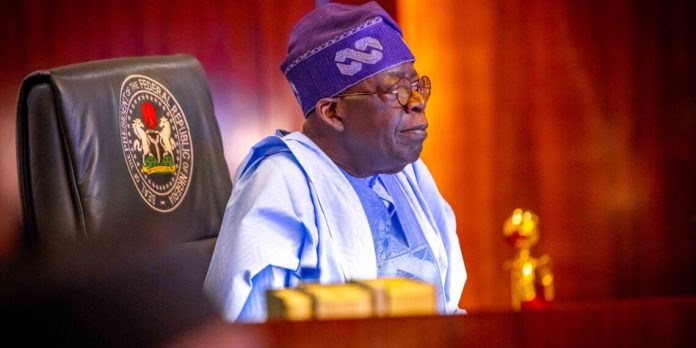President Bola Tinubu has assented to the electricity bill, which authorizes states, companies and individuals to generate, transmit and distribute electricity.
The new electricity law repeals the Electric Power Sector Reform Act (EPSRA) which was signed by President Olusegun Obasanjo in 2005.
The EPSRA (2005) provided the legal, regulatory and governance frameworks underpinning the Nigerian Electricity Supply Industry (NESI).
The new Act signed by Mr Tinubu consolidates all legislations dealing with the electricity supply industry to provide an omnibus and ideal institutional framework to guide the post-privatization phase of the Nigerian Electricity Supply Industry and encourage private sector investments in the industry.
It also provides a framework for the improvement of access to electricity in rural, unserved, underserved, peri-urban and urban areas through the use of conventional sources and renewable energy off-grid and mini-grid solutions.
With the new law, states would be able to issue licenses to private investors who have the ability to operate mini-grids and power plants but such state licenses are not to extend to inter-state or transnational distribution of electricity.
Speaking on the enactment of the new act, President Bola Tinubu, during an interactive session with traditional rulers on Friday, said the constitutional amendment permits Nigeria’s 36 states to generate electricity.
‘‘That’s devolution of power and that should be our contribution to the developmental projects you are looking for and we will continue in ways that will help our people,’’ Mr Tinubu was quoted as saying.
Under the Nigeria Electricity Act, electricity generation licensees are obligated to meet renewable generation obligations as may be prescribed by NERC.
To create a market for renewable energy and stimulate investments in the sector, electricity generating companies will be mandated to either generate power from renewable energy sources, purchase power generated from renewable energy or procure any instrument representing renewable energy generation.
The Electricity Act also mandates the imposition of renewable purchase obligations on distribution or supply licensees.
Meanwhile, until a state has passed its electricity market laws, the Nigerian Electricity Regulatory Commission (NERC) will continue to regulate electricity business exclusively carried out in those states.
The Electricity Reform Act, of 2005, also empowers the NERC to oversee the electricity industry activities, including licensing and regulating persons engaged in the generation, transmission, and system operation. NERC would continue performing this function under the new law.
About two weeks earlier, former President Muhammadu Buhari had signed 16 constitutional amendment bills, one of which pertains to the devolution of powers as it relates to the national grid system. It also provided clarity on the powers of the federal government and states to generate, transmit, and distribute electricity.








